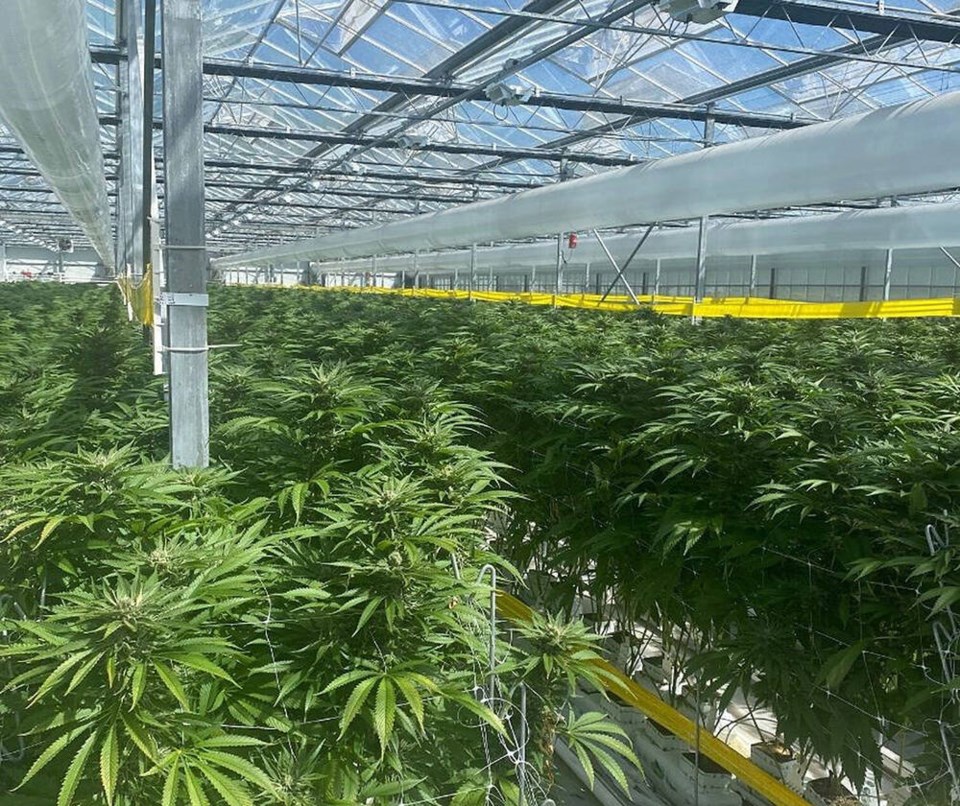An East Ladner cannabis greenhouse operation isn’t painting a rosy profit picture for its audited annual financial results.
Partnering with Houweling Nurseries on 64th Street to create the venture called Boundary Bay Cannabis, Agra Ventures Ltd. in its report for the fiscal year ending Dec. 31, 2022, made public last week, notes that total revenues for the year was $673,416, as compared to the $928,208 reported for the same period the prior year.
The company says it “reflects the current challenged state of the Canadian cannabis industry and was primarily due to the sale of cannabis at declining prices by the Boundary Bay Cannabis joint venture entity.”
Gross profit for the year was $303,967, from the $405,223 reported for the same period the prior year, while total expenses for the year was $5,671,770, a significant decrease from the $18,440,744 reported for the same period the prior year.
According to the company, the lower expense figure was “primarily due to a decrease in transaction costs, finance and other costs, production costs and consulting and management expenses.”
The comprehensive loss for the year ending Dec. 31, 2022 was $41,969,746, as compared to a comprehensive loss of $2,354,780 reported for the same period the prior year.
The company says it “was primarily due to the impairment of investments by $15,612,428, the recording of a provision on a loan receivable of $18,088,318 as well as the impairment of intangible assets and write-off of certain accounts receivable.”
Meanwhile, total assets for the year were $1,094,736, from the $46,216,990 reported for the same period of the prior year.
“The 2022 fiscal year can best be characterized as an opportunity to significantly improve the company’s cost structure against the backdrop of a highly competitive recreational cannabis price environment. AGRA’s current situation is not unique on the high-cost and regulatorily burdensome landscape that is the Canadian cannabis industry. However, management continues to work toward positioning the Company for future optionality by exiting unprofitable ventures and monetizing assets of declining value. I would like to thank our stakeholders for their continued support and guidance on this path,” said Nick Kuzyk, CEO and Director of Agra Ventures, in a news release.
The company last year said it was hoping for changes from a federal government review of the Cannabis Act.
Having legalized the product in 2018, the government in September announced it was launching a legislative review of the act, looking at several aspects of legalization including the domestic cannabis industry and the black market.
Agra Ventures noted that companies in the business of licensed cannabis production are hoping to benefit as it may lead to improvements in potency and packaging restrictions, as well as reductions or the elimination of various tax regulations on cannabis products.
“Some of the major challenges faced by companies in the cannabis industry currently include the inability to operate profitably and the difficulty of navigating numerous regulations and restrictions. These difficulties, among others, could be significantly eased as a result of a positive set of changes resulting from the review,” the company said in a news release at the time.
The Delta cannabis producer also warned that the economic health of many licensed producers, processors, retailers and other members of the industry are currently at risk.
The company is also hoping the sale of CBD products on an over-the-counter basis will be allowed, similar to how they are sold in the United States, as well as the removal of certain packaging limits, such as the one-gram limit on the size of dried flower pre-rolls, and allowing the promotion of cannabis use on an even playing field with alcohol and other controlled substances.



